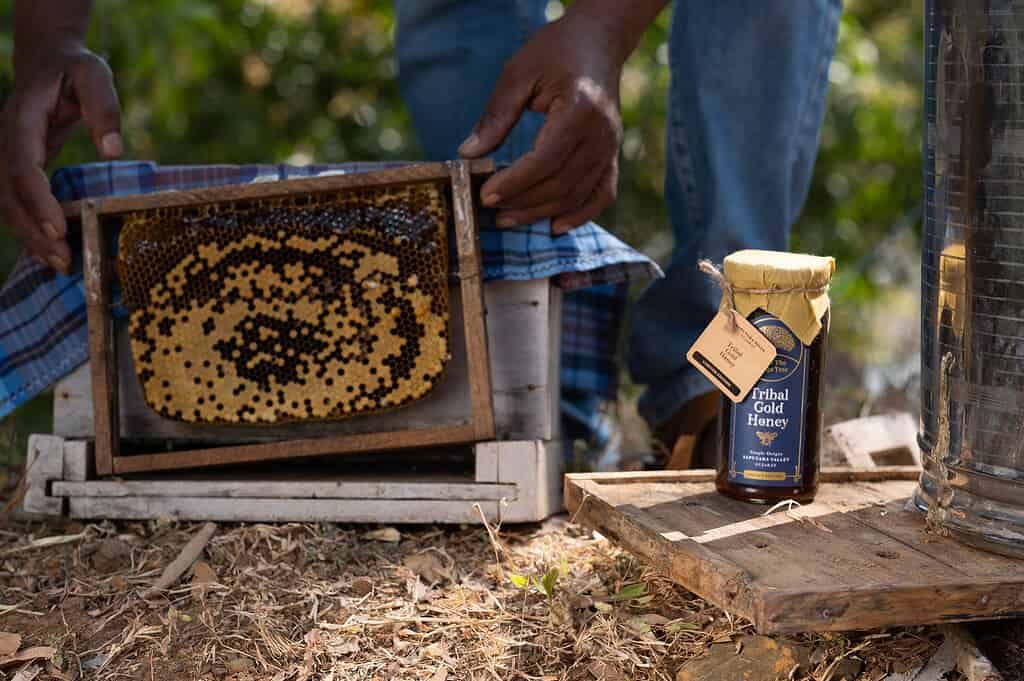Under the Mango Tree

Helping India’s smallholder farmers increase their productivity by teaching them the practice of beekeeping
- Company
- Agriculture
- India
- 2016
- Active
The challenge
More than three-quarters of the world’s food crops rely on insects like bees for pollination. However, global bee populations are declining rapidly, posing a serious risk to long-term food security. In India, this problem is acute. According to the Indian Council of Agricultural Research, India needs at least seven million bee colonies to pollinate 12 major local crops – a long way off from the 1.5 million colonies that exist today. Smallholder farmers make up nearly 75 percent of India’s population and the majority of these farmers typically lack access to end markets, making it difficult to sell the outputs they produce. As a result, farmers must rely on additional sources of income, such as livestock management to survive. However, procuring and maintaining animals is not only expensive, but it also doesn’t benefit their existing crops.
The innovation
Under the Mango Tree trains smallholder farmers in rural India to keep bees to improve productivity, increase incomes and enhance livelihoods. Additionally, bee pollination has been shown to increase agricultural yields by as much as 50-100%. When combined with market access for their honey, improved crop productivity as a by-product of beekeeping can increase a farmer’s income by more than 40 percent. By procuring honey and beeswax directly from the farmers they train, UTMT helps generate consistent, sustainable sources of income as a result of linking farmers directly to markets.
The impact
Smallholder farmer incomes are estimated to increase by more than 50 percent. Under the Mango Tree aims to reach over 10,000 farmers by 2018, serving low-income customers who make less than $2.50 a day. Honey and related bee products add an additional income source for smallholder farmers, along with increased agricultural productivity, stable employment and sustainable incomes from direct market access for farmers. Additionally, promoting bee keeping is a natural and low cost way for the restoration of overall ecology and for the betterment of farmers and farm productivity.